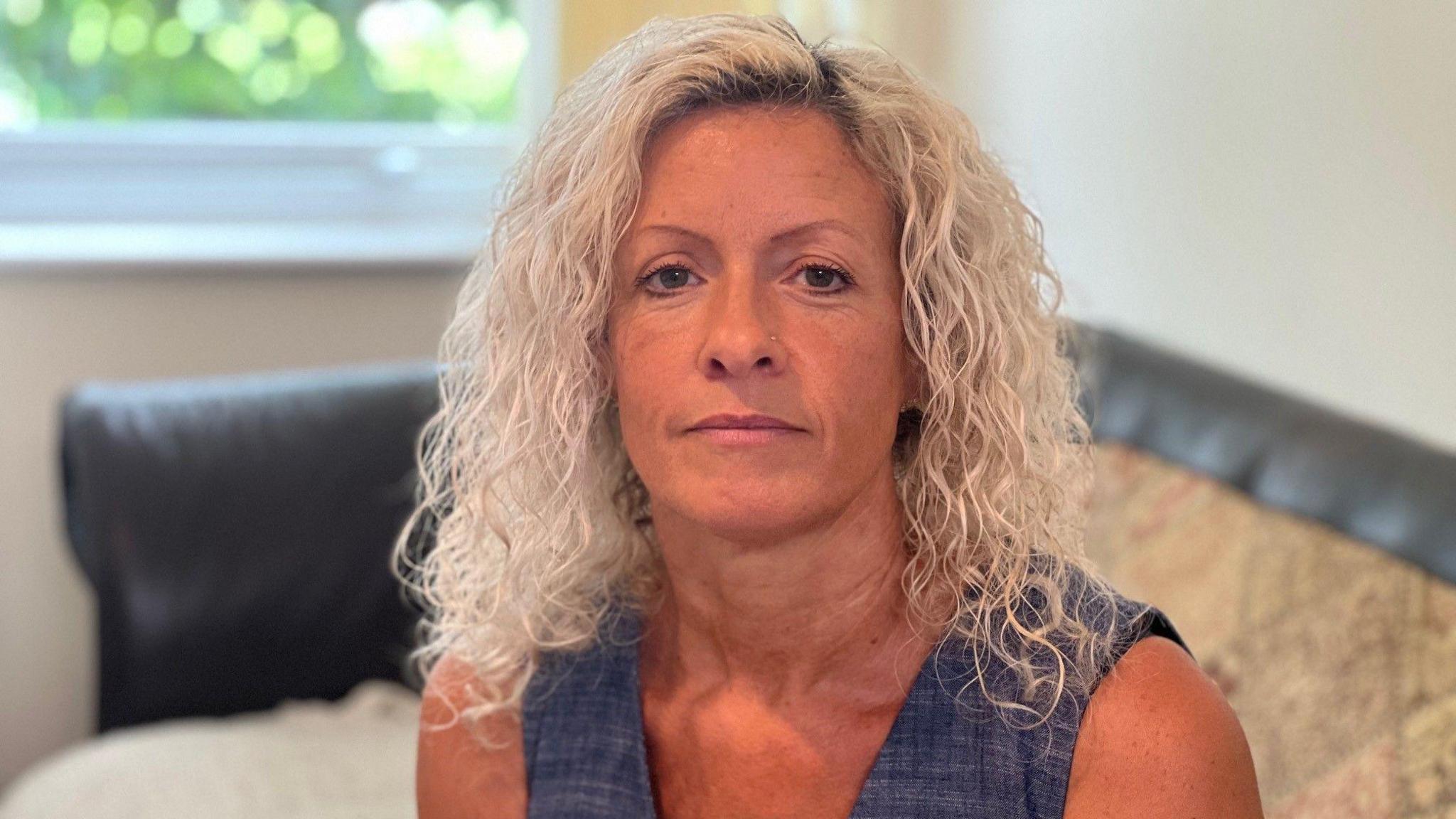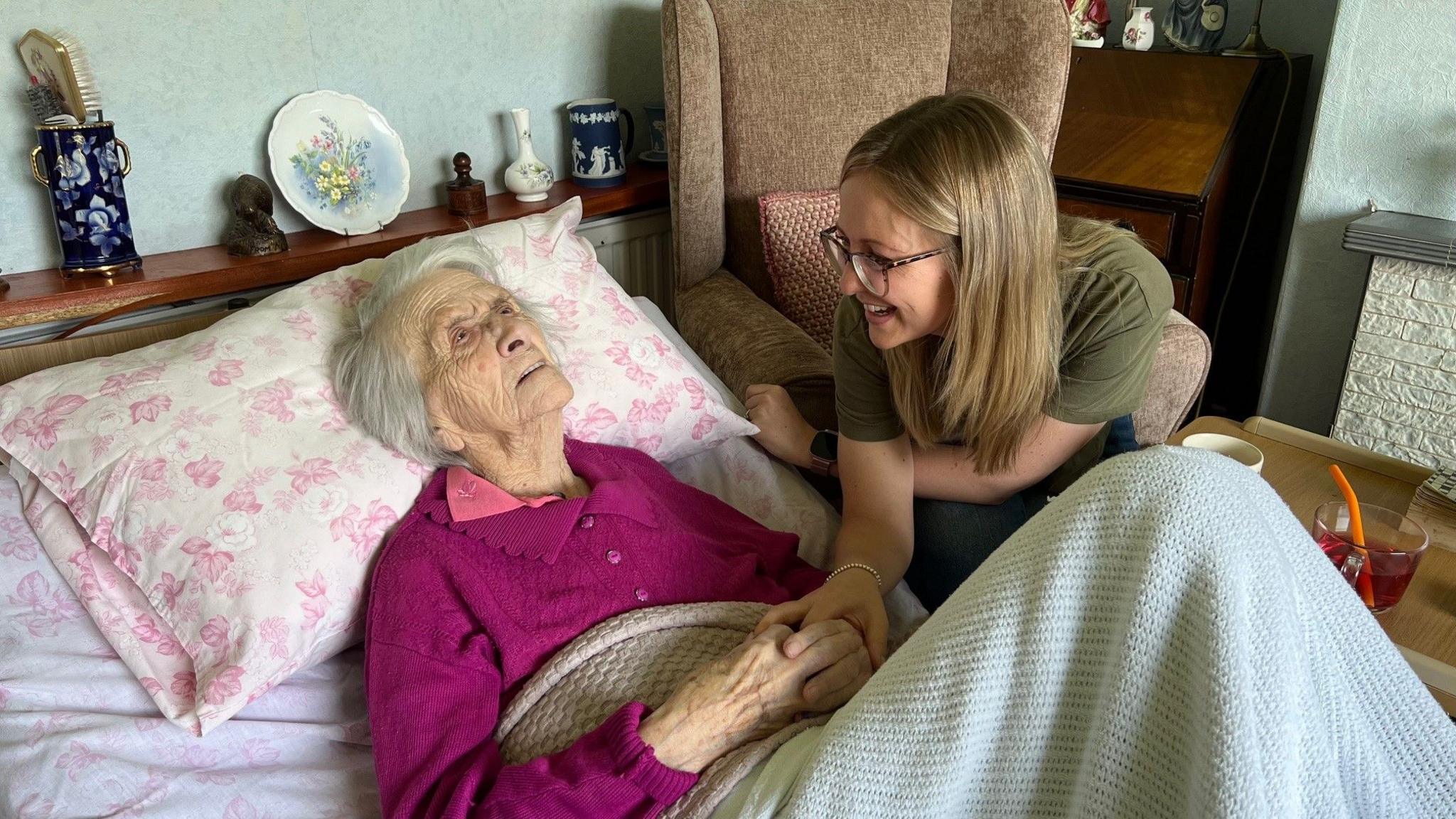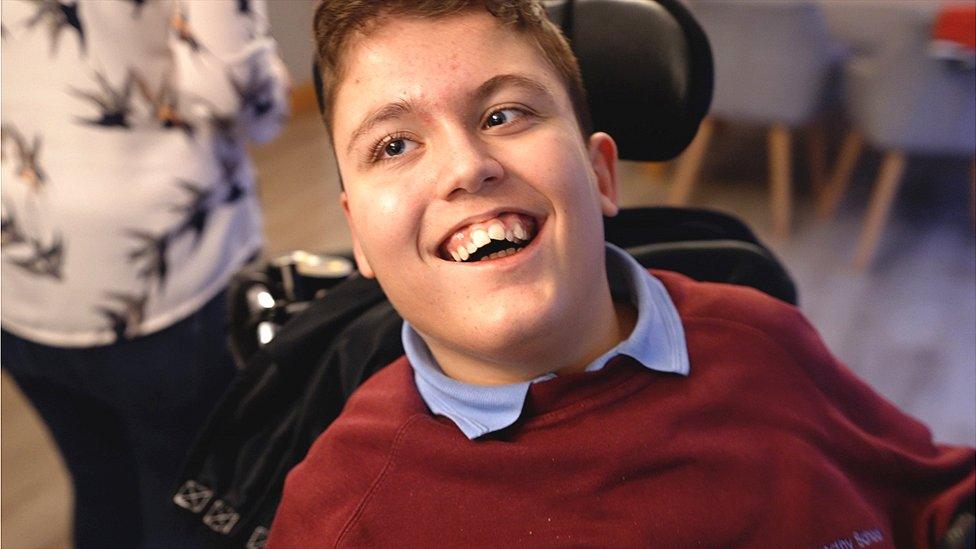Care funding 'at risk' for seriously ill

Michelle fears funding could be pulled for her daughter Ellie's care
- Published
People with serious illnesses such as motor neurone disease and Parkinson's are facing misery after having their care funding withdrawn, an MP has said.
Westmorland and Lonsdale's Tim Farron obtained figures from NHS officials showing a steep rise in the number of people having their support for day-to-day care dropped or reduced in south Cumbria and Lancashire.
The Liberal Democrat has written to the Secretary of State for Health and Social Care Wes Streeting to raise concerns.
Lancashire and South Cumbria Integrated Care Board (ICB), which is responsible for the funding, said reviewing people's care was "integral to ensuring patients have their health needs met appropriately".
Farron said the cuts came to light as the government told ICBs to save £142m.
The Department for Health and Social Care said it was "asking ICBs to cut duplication, not funding for vulnerable people and those who need it."
'Fighting appeals'
Ellie, from Kendal, currently gets this kind of funding, known as continuing health care (CHC).
Her complex set of disabilities mean she sometimes lashes out and needs two carers round the clock.
Her mum Michelle said she was told part of that funding may now be taken over by Westmorland and Furness Council, which would be means tested and could result in less funding overall.
She said: "Ellie is a risk, sadly, if she comes home. I have children under the age of 18 and because of the violence, she wouldn't be able to live within the family home."
She added if the funding was to change, her daughter's care package would "not be able to remain".
To receive CHC funding, the ICB has to assess each patient.
Farron said the drop in funding started being reported to him when management support company Liaison Care was brought in by the ICB in a bid to save money.
A Freedom of Information request submitted by Farron's office - and shared with the BBC - showed 94 people had their eligibility reduced or removed since Liaison Care was brought in.
This was over five times more than the 18 people whose funding was affected in a similar period of time.
Farron said the cases brought to him showed decisions were flawed.
"Sadly, the reality for the families who have their funding cut is they spent enormous amounts of time, energy and stress fighting appeals and trying to get decisions overturned," he said.
He added people with serious conditions should be "spending what time remains creating memories", instead of fighting bureaucracy.
The ICB said the "correct package of care" for each patient was based on national NHS guidance.
A spokesman said: "Reviews are conducted by highly experienced nurses and teams, who take input from the individual themselves, their family and health and care practitioners involved in an individual's care."
Liaison Care, based in Hertfordshire, declined to comment separately and said its response was part of the statement provided by the NHS.
Follow BBC Cumbria on X, external, Facebook, external, Nextdoor and Instagram, external.
Get in touch
Do you have a story suggestion for BBC Cumbria?
Related topics
- Published13 August

- Published14 February 2024
